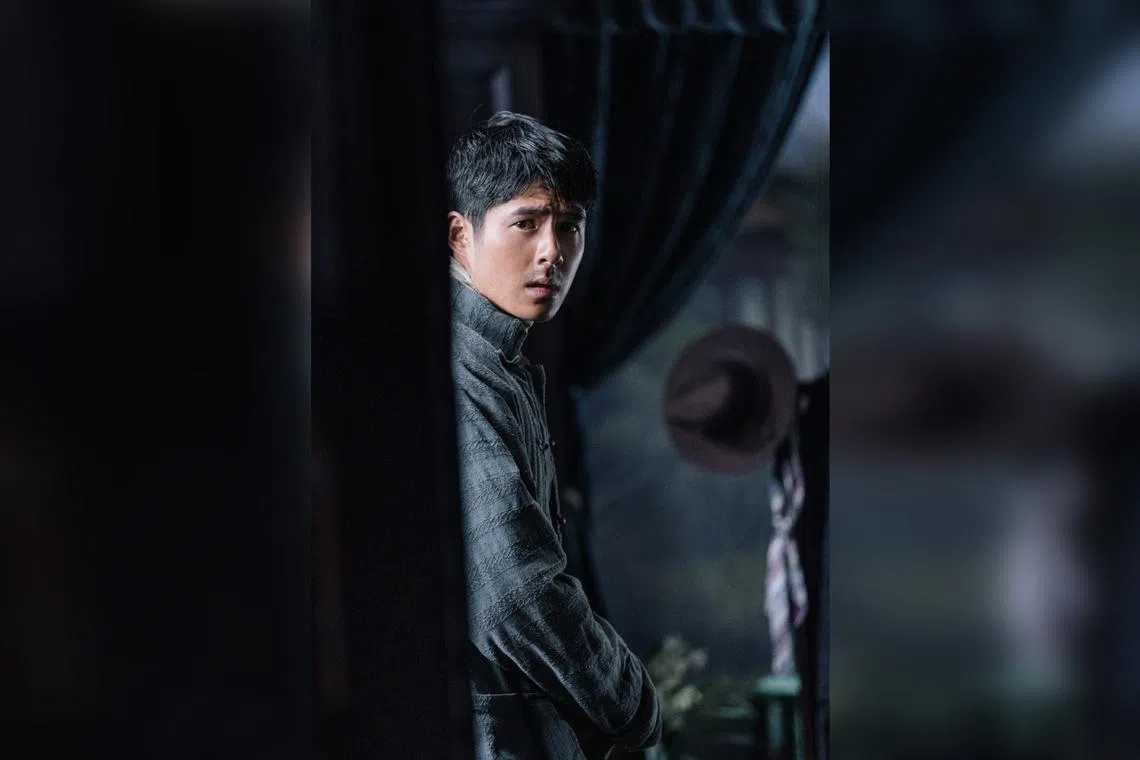Nanjing Massacre film Dead To Rights tops China’s summer box office
Sign up now: Get ST's newsletters delivered to your inbox

Liu Haoran in Dead To Rights.
PHOTO: SHAW ORGANISATION
BEIJING – A Chinese historical drama depicting the 1937 Nanjing Massacre by Japanese troops has topped China’s summer box office, with tourists flocking to the Shanghai set where it was filmed. The year 2025 marks the 80th anniversary of the end of World War II.
Dead To Rights, released on July 25, has grossed more than 2.3 billion yuan (S$411 million) and attracted over 60 million viewers, according to Chinese media.
Directed by Ao Shan and starring Liu Haoran, Wang Chuanjun and Gao Ye, the movie opens in Singapore cinemas on Aug 28.
With its graphic scenes of Japanese soldiers shooting large numbers of Chinese civilians and throwing infants to the ground, the film has raised concerns that it could fuel anti-Japan sentiment among viewers.
Set in Nanjing, the capital of the Republic of China under the Nationalist government which fell in the 1937 battle and came under Japanese control, the war thriller tells the story of Chinese civilians who took refuge in a photography studio.
In a bid to survive, they are forced to help a Japanese military photographer develop film, only to discover negatives showing atrocities committed by Japanese troops. They secretly keep the negatives and risk their lives to smuggle them out.
Among the viewers at a Shanghai theatre was a woman in her 30s who came with her elementary school-aged daughter. She said it was “no problem” for her child to see the cruel scenes.
A large number of people have praised Dead To Rights in social media posts, while videos of children saying Japan “should never be forgiven” and tearing up cards of Japanese animation characters after seeing the movie have gone viral.
The 25,000 sq m site in Shanghai where the film was shot was opened to the public in late July. It features recreated historical buildings of Nanjing, including partially destroyed structures and scattered debris.
Many families took commemorative photos in front of a photo studio shown in the movie. “I came here to tell my child that the tragic history of China must not be forgotten,” said a 38-year-old woman who visited the site with her nine-year-old daughter.
Some people were critical of the movie, however. A Shanghai man in his 60s said children “should not be educated to hold a grudge against a foreign country”.
A man in his 30s from Nanjing said he believes the film’s release was intended to “fuel patriotism and divert public attention from misrule” amid the Asian powerhouse’s economic downturn.
Earlier in August, Dead To Rights premiered in North America.
On Aug 6, Chinese Ambassador to the United States Xie Feng said at the event that “the 1.4 billion Chinese people will never tolerate any attempt to tamper with the history of WWII, and all the peace-loving people in the world will never accept any move to turn back the wheel of history”, according to the Chinese Embassy in Washington.
To mark the 80th anniversary of what China calls its victory in the 1937-1945 War of Resistance against Japanese Aggression, it plans to hold a military parade in Tiananmen Square in the capital on Sept 3.
Similar war-themed movies have been or are set to be released in China in 2025.
One about the Imperial Japanese Army’s notorious Unit 731 will be screened from Sept 18, the 94th anniversary of the bombing of a railroad track near Shenyang – an event that triggered the Manchurian Incident and led to Japan’s invasion of north-eastern China.
Millions of people online have expressed interest in the film about the unit, titled 731, which historians say conducted biological and chemical warfare research in China during World War II. KYODO NEWS


